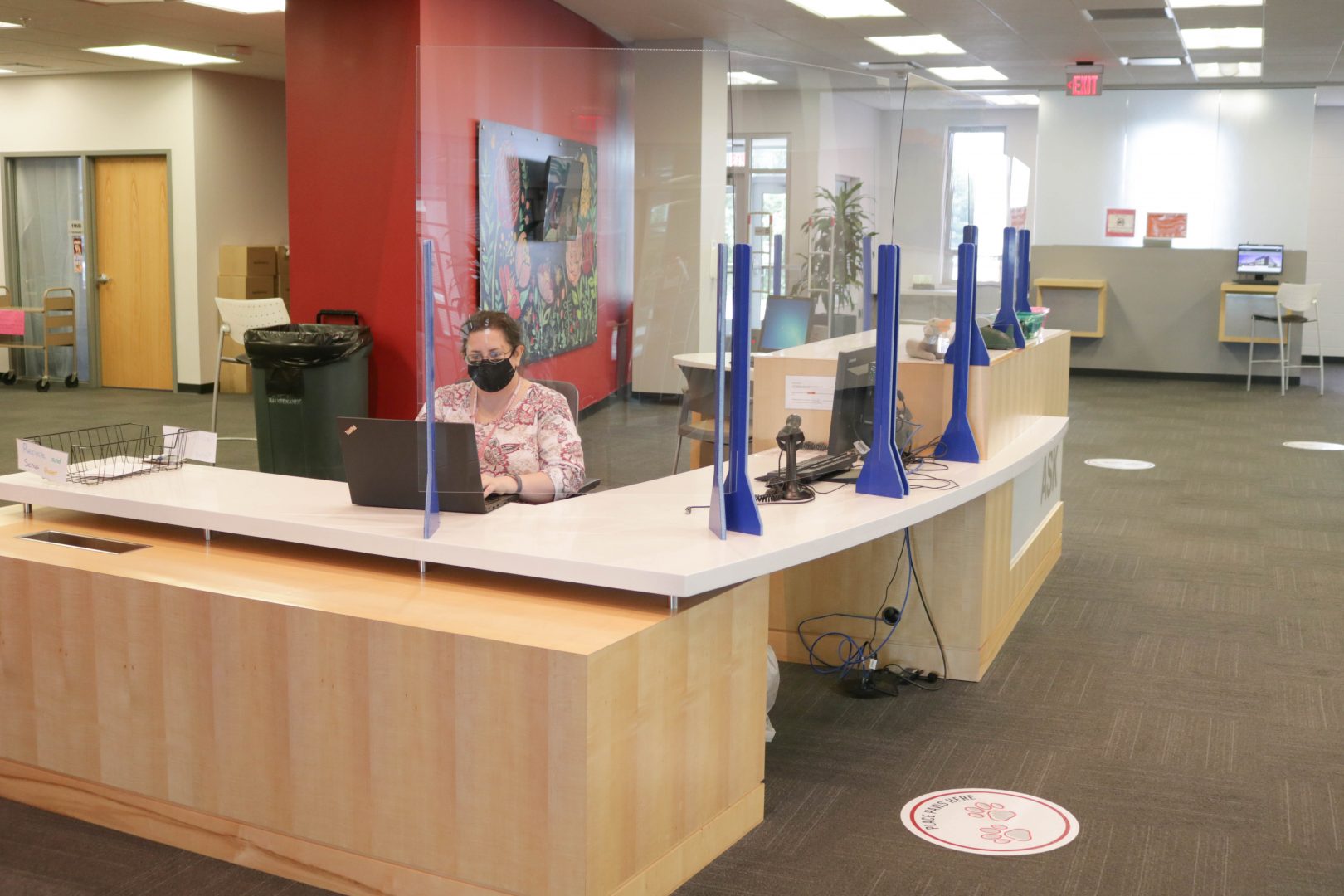The Krannert Memorial Library has reopened to the students, staff and faculty of the University of Indianapolis, with new additions and policies to create a safe environment for studying. This was part of UIndy moving into Phase 1.5 of its reopening plan, according to an email sent by Vice President for Student and Campus Affairs and Dean of Students Kory Vitangeli on July 30.
Some policies have been changed. For example, returned books have to be quarantined for three days before they can go back on the shelf, according to Library Director Marisa Albrecht. In addition, even if a student picks up or uses a book but does not want to check it out, they should bring it to staff members so that they can quarantine it, according to Albrecht.
“That might cause some problems. If a book is popular, it’s just not going to be available as quickly as maybe somebody needs it,” Albrecht said. “There’s no way to disinfect a book that’s safe. We can’t spray it with anything.”

According to Albrecht, students may now request a chapter of a print book or journal to be scanned and sent to them. Students, faculty and staff can file a request through an interlibrary loan request and by using the article or book request form, according to a document highlighting KML’s remote services.
“Beforehand, if you were a student at the university and we had a book or a journal that was on the shelf and you asked for it, we would just have you come in and get it because we had a lot of other work to do,” Albrecht said. “But now we’re going to scan, so if you want a chapter of a book, even if it’s on the shelf and you could come get it [in person], we will still scan it for you so that you don’t have to come into the library.”
In the past, only distance students could have chapters or journals scanned and sent to them, Albrecht said. These students did not live in Indianapolis and were signed up for online classes, according to Albrecht. However, this is now available to all students regardless of their status on campus, according to a document highlighting KML’s remote services.
Most of the interlibrary loan system has remained unchanged due to the majority of it being done electronically, according to Resource Sharing Librarian Kim Wenning. However, it may take longer than usual for students to receive physical books due to books having to be quarantined, along with the library’s scheduling and staffing changes, according to Albrecht.
E-books also cannot be shared as physical copies between libraries because libraries buy e-books in packages and they sign a contract saying only their users can use the books, according to Wenning. However, specific chapters from e-books can be ordered, according to Wenning.
“Another reason is they [e-books] come in so many different formats, so it’s hard for them to send it to us in one format if we can’t accept it in that format or the user can’t use it in that format,” Wenning said. “And another one [reason] is that a lot of the books like that we have in our databases are divided up by chapter. So it would take a long time for us to create one big document with all of those chapters together.”
According to Albrecht, some departments, such as Admissions, Student Affairs and Professional Edge, will be occupying some of the study rooms this semester, changing the availability of some study rooms. This is being done to alleviate crowding in Schwitzer Student Center and to allow for more social distancing between students using the service and staff, according to Albrecht. The yellow room on the first floor will also be used as a commuter lounge and offer services for commuters, according to Albrecht.
In order to comply with social distancing, some computers have been removed by IT, according to Reference and Instruction Librarian Tedra Richter. Also, hand sanitizer stations have been added across campus, including inside the library, according to Richter. Plexiglas has been placed on the front desk and distancing lines have been added, according to Wenning.
The library plans to be consistent with the rest of campus in regard to the university’s mask policy. While in the library, as well as in any other building on campus, students, faculty and staff must wear a face mask, according to UIndy’s website. If students, faculty and staff do not have a mask, they are available at the front desk in the library, according to Albrecht.
Resources, such as databases, interlibrary loan and library instruction, are available remotely through MyUIndy, according to KML’s website. Students, faculty and staff may also schedule through KML’s website virtual one-on-one appointments over Zoom or Google Meets if they have a question, according to a document highlighting KML’s remote services.
KML will resume its normal hours starting on Aug. 24 and will be open to anyone during the fall semester, according to Albrecht.
CORRECTIONS: Aug. 19, 2020 at 4:40 p.m.
A previous version of this article misspelled Tedra Richter’s name and also had incorrect information about the library’s interlibrary loan system. The article has since been updated with the correct information.







